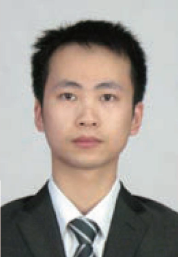Xiang Chen1*, Qiang Zhang2*
1Beijing Key Laboratory of Green Chemical Reaction Engineering and Technology, Department of Chemical Engineering, Tsinghua University, Beijing 100084, China
EXTENDED ABSTRACT: Lithium metal batteries are considered as promising next-generation energy storage devices due to their ultrahigh energy densities. However, the high reactivity of lithium metal toward organic solvents and salts renders inevitable side reactions, which further leads to undesirable electrolyte depletion, cell failure, and the evolution of flammable gas. Tremendous efforts from experiments have been devoted to the exploration of advanced electrolytes mainly through trialand-error approaches, which are both time-consuming and cost-expensive. Herein, the ion—solvent chemistry was developed to prove the intrinsic instability of normal organic electrolytes towards lithium metal anodes through multiscale calculations and in situ microscopic observations. Based on the ion—solvent model, several strategies were further proposed to build stable electrolytes for alkali metal anodes, including additive design and regulating anions in electrolyte solvation shells. Finally, a big-data paradigm, namely the electrolyte project, was established to achieve the rational design of advanced electrolytes through the combination of high-throughput calculations and big-data studies.
Keywords: lithium metal batteries; electrolyte project; multi-scale simulations; high-throughput calculation, big-data study
REFERENCES
[1] N. Yao, X. Chen,* Z.-H. Fu, Q. Zhang,* Chem. Rev. 2022, 122, 10970-11021.
[2] Chen, X.; Zhang, Q.* Acc. Chem. Res. 2020, 53, 1992—2002.
[3] Chen, X.; Shen, X.; Li, B. et al. Angew. Chem. Int. Ed. 2018, 57, 734-737
[4] Chen, X.; Li, H.-R.; Shen, X.; Zhang, Q. Angew. Chem. Int. Ed. 2018, 57, 16643-16647
[5] Chen, X.; Shen, X.; Hou, T.-Z.; Zhang, R.; Peng, H.-J.; Zhang, Q. Chem 2020, 6, 2242—2256.
[6] Chen, X.; Liu, X.; Shen, X.; Zhang, Q. Angew. Chem. Int. Ed. 2021, 60, 24354-24366.
[7] N. Yao, X. Chen, X.* Shen, R. Zhang et al. Angew. Chem. Int. Ed. 2021, 60, 21473—21478.

Xiang Chen gained his Bachelor's and Ph.D. degrees from the Department of Chemical Engineering at Tsinghua University in 2016 and 2021, respectively. He is currently a Shuimu Tsinghua Scholar at Tsinghua University. His research interests focus on understanding the chemical mechanism and materials science in rechargeable batteries mainly through multi-scale simulations and machine learning. He has published more than thirty (co)-first-author papers in Chem. Rev., Acc. Chem. Res., Sci. Adv., Chem, Angew. Chem., J. Energy Chem., Fundam. Res. et al., with more than 10000 citations and an H-index of 45. He has been rewarded the Clarivate Highly Cited Researchers in both 2020 and 2021. He is supported by the National Natural Science Foundation of China and the Young Elite Scientists Sponsorship Program by CAST.